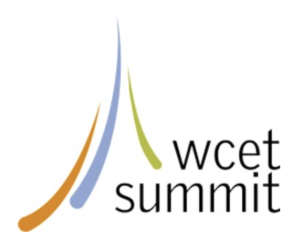I recently attended WCET’s annual summit that examined Ethical and Equitable Access in Digital Learning. It’s been a few years since I’ve attended a WCET event and I’ve missed the high-level discussions that occur at them, often on topics that are just about to emerge in mainstream higher education conversations. This year’s event was no exception, and the timing was perfect for the theme.
The summit was promoted as an opportunity for rich discussion on three topics:
* Equity as a demonstrated priority for the institutions’ students, faculty, and staff
* Accessibility as the lens through which the institution examines its resources, policies, services, and infrastructure
* Data and evidence-based decision making for student success and ethical questions underlying analytics engines and edtech products.
There were expansive conversations with panel members and participants throughout the event. Lindsey Downs of WCET has provided a comprehensive summary of the event on the WCETFrontiers blog.
In particular, the Panel Three topic: Ethical and Effective Uses of Student Data, resonated with me.
The question explored how best to ensure learner success by ethically and effectively using data to promote positive action. The conversation with panelists was wide ranging from data governance models to data dictionaries that would help ground consistent language and approaches to proactive interventions.
A compelling part of the discussion arose from a question that was asked by a panelist, “What is an institution’s ethical obligation of knowing?”
Hmmm. The question caused noticeable reflection in the whole room and on the Twitter back-channel. And, I’m still thinking about it. I’m sure it’s related to a duty of care when a learner enrolls for a program of study. But to what degree? Do you directly intervene with data through advisors to support students, or would a nudge theory approach be a more ethical and effective strategy, as panelist John Fritz suggested?
Thoroughly enjoyed the perspectives presented throughout the WCET Summit. Bonus for me: two excellent sit-down and reflect conversations with Phil Hill of e-Literate fame. And, I also had an opportunity to reconnect with colleagues Russ Poulin, Darcy Hardy and Mark Jenkins. Great thinkers, all of them.


